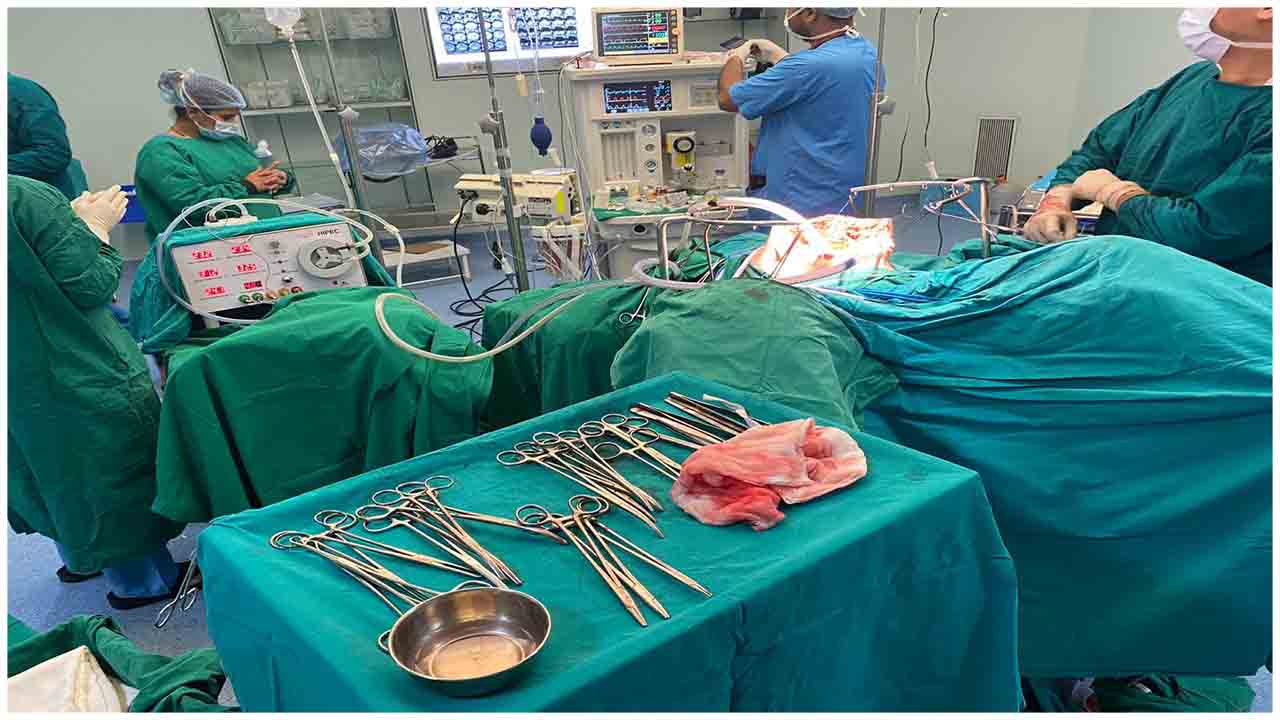Dr. Rajas B Patel is a Senior Oncologist based in Navi Mumbai. He is the founder of RH Clinic, a specialty center for Oncology, committed to making the latest innovations in the field of cancer prevention and treatment accessible to patients in India. The clinic has gained recognition for the quality of treatment and post-treatment care offered to patients, as well as for its holistic, empathetic approach. It is staffed by a team of highly trained doctors and medical practitioners, with Dr. Patel personally examining and consulting every case. The centre’s areas of expertise include medical oncology, breast cancer, gynaecological cancer, gastrointestinal cancer, lung cancer, kidney and other urological cancers, pancreatic cancer, head and neck cancer and haematological cancer. Further, it offers patients undergoing treatment the very best pain & other palliative management.
In this free wheeling chat medicircle.in catches up with the busy Doctor to understand HIPEC procedure for cancer patients
HIPEC – an innovative chemotherapy procedure for late-stage abdominal cancers
Recent statistics from the National Cancer Registry Programme reveal ovarian cancer to be the third-most common cancer in Indian women. What makes these numbers especially worrying is that around 70 percent of patients diagnosed with ovarian cancer experience recurrence, with those diagnosed with stage four ovarian cancer having a 90-95 percent risk of recurrence. Further, ovarian cancer – as is the case with other cancers located in the abdominal cavity – is difficult to treat with conventional measures such as intravenous chemotherapy as well as intraperitoneal chemotherapy. A novel technique known as Hyperthermic Intraperitoneal Chemotherapy (HIPEC) is now being introduced to treat ovarian cancer cases as well as those malignancies that were previously believed to be uncurable with patients only being offered palliative care.
Understanding HIPEC
HIPEC involves delivering highly concentrated, heated chemotherapy treatment directly to the abdominal cavity during surgery. Prior to performing HIPEC surgery, patients are administered chemotherapy to downstage their cancer. During surgery, visible tumours are first removed from the abdomen.
The chemotherapy drugs are heated to a temperature of 40-45 degrees C and the temperature is maintained for one hour, as the drugs are circulated inside the abdominal cavity to destroy any remaining cancer cells or tumours that cannot be seen by the surgeon – this prevents these cells from developing into new tumours, causing cancer to return. By delivering the treatment directly to the cancer cells, HIPEC allows for higher doses of treatment to be administered to patients. This also results in fewer side effects than intravenous chemotherapy (such as hair loss, diarrhoea and mouth sores), because the high concentrations of the chemotherapy solution are unable to cross what is known as the peritoneal plasma barrier.
Consequently, it has been found that pairing surgery and HIPEC may be more beneficial than chemotherapy alone. HIPEC is also delivered in a single dose during surgery, as opposed to undergoing multiple treatment sessions as is the case with conventional chemotherapy. During surgery, the patient’s body temperature is continuously monitored to prevent the risk of hypothermia, which can arise from the abdominal cavity being kept open for an extended period. However, recent medical and technological interventions can successfully bring down the risk of this complication.
The use of HIPEC can help to reduce the chances of recurrence or, at the very least, delay recurrence by several months. The entire procedure is performed under general anaesthesia. It is also used for treating other tumours, including colorectal cancers, and cancers of the appendix and pancreas.
HIPEC in India
HIPEC is currently offered in major metros and performed only by select oncologists who must undergo specialized training to perform this procedure. In the past, HIPEC was performed only on imported machinery, which meant that the associated costs were significantly higher. Today, with the help of domestically manufactured machinery, the cost of the HIPEC procedure has been brought down from INR 8-10 lakh to INR 3-4 lakh, making it much more accessible.
Who should consider HIPEC?
HIPEC is a suitable treatment option for patients who have been diagnosed with:
Appendix cancer
Colorectal cancer
Desmoplastic small round cell tumours (common in adolescents or young adults)
Malignant ascites
Mesothelioma
Ovarian cancer
Peritoneal cancer
Stomach (gastric) cancer
Other locally advanced cancers in the abdomen.
In some patients, HIPEC can offer a long-term cure for abdominal cancers. In others, HIPEC enables doctors to treat incurable cancers like a chronic instead of a terminal illness. Your oncologist will advise you about the suitability of HIPEC as a treatment option, depending on your tumour type, your cancer’s stage and how quickly it is growing, as well as your overall medical condition.

 Dr Rajas B Patel takes us through the latest HIPEC chemotherapy process for cancer patients
Dr Rajas B Patel takes us through the latest HIPEC chemotherapy process for cancer patients























.jpeg)









